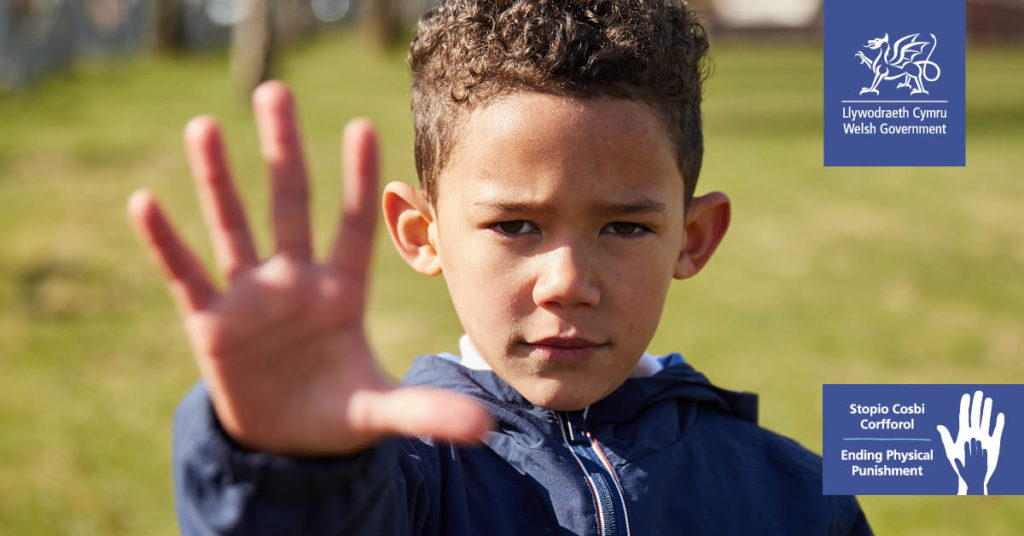
Trigger warning – Talking about physical punishment of children at home and in schools.
21 March 2022 is an important day for the rights of children and young people in Wales. This is the day when physical punishment of children will be illegal in Wales. Legislation put in place by the Welsh Parliament to prevent physical punishment of children, often called the ‘anti-smacking’ law. According to the Welsh Government they are putting this law in place to “protect children and their rights, to give them the best start in life”.
This is a significant and important thing that the Welsh Government has done, by giving legal rights to the small and most vulnerable in our society, they are protecting their futures. International research shows that smacking, hitting, slapping, and shaking a child leaves its mark not only physically but mentally. The emotional trauma is extreme, and a smacked child may see physical violence as ‘normal’, and the ‘smack’ circuit continues for generations. As members of the Welsh Youth Parliament, we discussed the ‘anti-smacking’ law and cast a secret ballot. A majority (70%) of members voted in favour of the ‘anti-smacking’ law, and a majority of children and young people across Wales support the safeguarding of their rights.
All over the world more and more democratic countries make physical punishment of children illegal. 63 countries have done so but many countries are still old fashioned, only 14% of the world’s children population has been protected so far. Sweden was the first country to stop corporal punishment in 1979. Legally in the United Kingdom, only Wales and Scotland have made it against the law.
The habit of smacking children goes back to dark times where physical punishment of children took place not only in the home but in schools. For example, during a time when the Welsh language was banned in schools. Pupils used to receive the cane at the end of the day, if they were the last person to receive the ‘Welsh Not’ plaque, for speaking Welsh. Fortunately, those days have passed because of the effects on the child are terrible. But we do not have to go far to see when the cane was used. In the United Kingdom the cane was not made illegal in state schools until 1987, and it was not illegal until 1997 for private schools. So, this bad legacy has been passed on until the end of the last century and attitudes towards punishing children are still not completely taboo.
So, if someone says that the physical punishment of children is still right inside the walls of a home, what should you say? Many say that physical punishment is fine because it shows that you love your child because you learn a lesson (no crossing the road when a car is coming). In response to that I would say that there are many better ways to learn that lesson, you can simply say that verbally. One smack can turn into many things, the boundary between a loving smack and a non-loving smack does not exist, it is a form of physical violence.
Authorities need to do everything possible to protect children from violence, abuse, and neglect, this is what Article 19 of the UNCRC (United Nations Convention on the Rights of The Child) says. I can be assured that Wales is one step closer to making the country safer for children and young people and putting the rights really into place in legislation, 21 March 2022 is a day to celebrate! I am looking forward to working to improve the lives of others facing domestic violence, inside the Domestic Abuse/ Never Silence the Violence subgroup of Carmarthenshire Youth Council.
Cai Phillips







